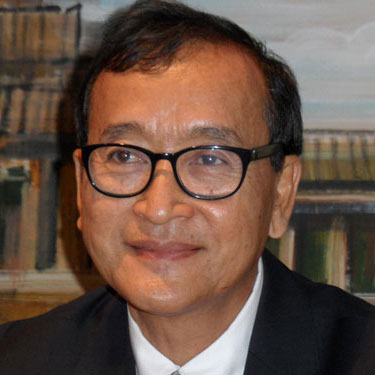The degeneration of the Association of Southeast Asian Nations (ASEAN) into a club for dictators has been made clear to the world by its failure to respond to the military coup in Myanmar and the continuing massacre of innocent civilians which ensued.
Less obvious, but equally dangerous in the long term, is the failure of the organisation to provide regional security for its citizens. These failings and the dangers they create are shown in a new report from the Global Initiative Against Transnational Organised Crime.
ASEAN is not simply an ineffective husk which is alway ready to provide an alibi for repressive dictators. It has also failed to prevent the region from becoming a haven for organised crime. According to the Global Initiative report, ASEAN’s investments in infrastructure and cross-border trade have not been matched with investments in security.
So Southeast Asia, despite its small geographical size, has become a major hub for the global trade in narcotics, illegal timber, counterfeit goods and medicines. The region is also a major centre of human trafficking. Over half a million migrants are smuggled into Thailand alone each year. They come mainly from Myanmar, Cambodia, and Laos, and generate annual profits of nearly $200m.
Some leaders in the region imagine that they can turn to China to police the region, and indeed to solve all of their national problems. The futility of doing so is shown by the case of the China–Thailand–Myanmar Economic Corridor and Yatai New City in Myanmar, which has become a centre of illegal gambling. The businessman behind the project claimed that his plans were part of China’s Belt and Road Initiative (BRI). The Chinese embassy in August 2020 had to publicly disassociate itself from the project.
China has no magic wand to create security for our region. In 2017, China and five ASEAN countries set up a joint law enforcement centre to share intelligence and coordinate the fight against cross border crime. According to the Global Initiative report, the initiative has proved largely ineffective. The report notes that Chinese fugitive criminals have been able to acquire foreign passports from countries including Cambodia and Myanmar, develop relationships with corrupt local elites, and so operate with impunity.
The truth is that Beijing is unable to stop organised crime in Southeast Asia. The region has to develop the capacity to police itself.
Reimagining Southeast Asia
ASEAN served a real purpose when it was first created in 1967. It has failed to move with the times, crippled most obviously by its doctrine of non-interference. In practice, non-interference means that the region’s worst dictators turn a blind eye to each other’s atrocities, while secretly helping each other to track down dissidents who have crossed borders.
The South East Asia Community (SEAC), launched in May with the support of prominent democratic politicians in Myanmar, Thailand, Indonesia, Malaysia, the Philippines and Cambodia, is an invitation to reimagine the future of our region and the peoples we represent.
SEAC stands for the universal values of freedom, democracy, justice and the rule of law. Membership is open to current and former ASEAN members of parliament, policy makers, academics and civil society leaders. The organisation believes that the sound institutions needed to ensure security can only be delivered in a context of democratic accountability. Authoritarian systems, as ASEAN’s experience has proved, simply serve as the building blocks for region-wide corruption.
We encourage the international community to see ASEAN for the dangerous farce which it has become and to engage with progressive democratic forces in the region via SEAC. Our initiative provides a forum for the exchange of ideas and information and the development of policy proposals which can help the region to solve its own problems. Institutions which are independent of national executives and are therefore free of the taint of corruption are the only viable solution to the security issues which threaten our region and, by extension, the wider world. Only democratic governments which accept the possibility of their own defeat at the ballot box have the incentive and the credibility to create such institutions.
The views and opinions expressed in this article are those of the author.

Sam Rainsy, Cambodia’s finance minister from 1993 to 1994, is the co-founder and acting leader of the opposition Cambodia National Rescue Party (CNRP).

